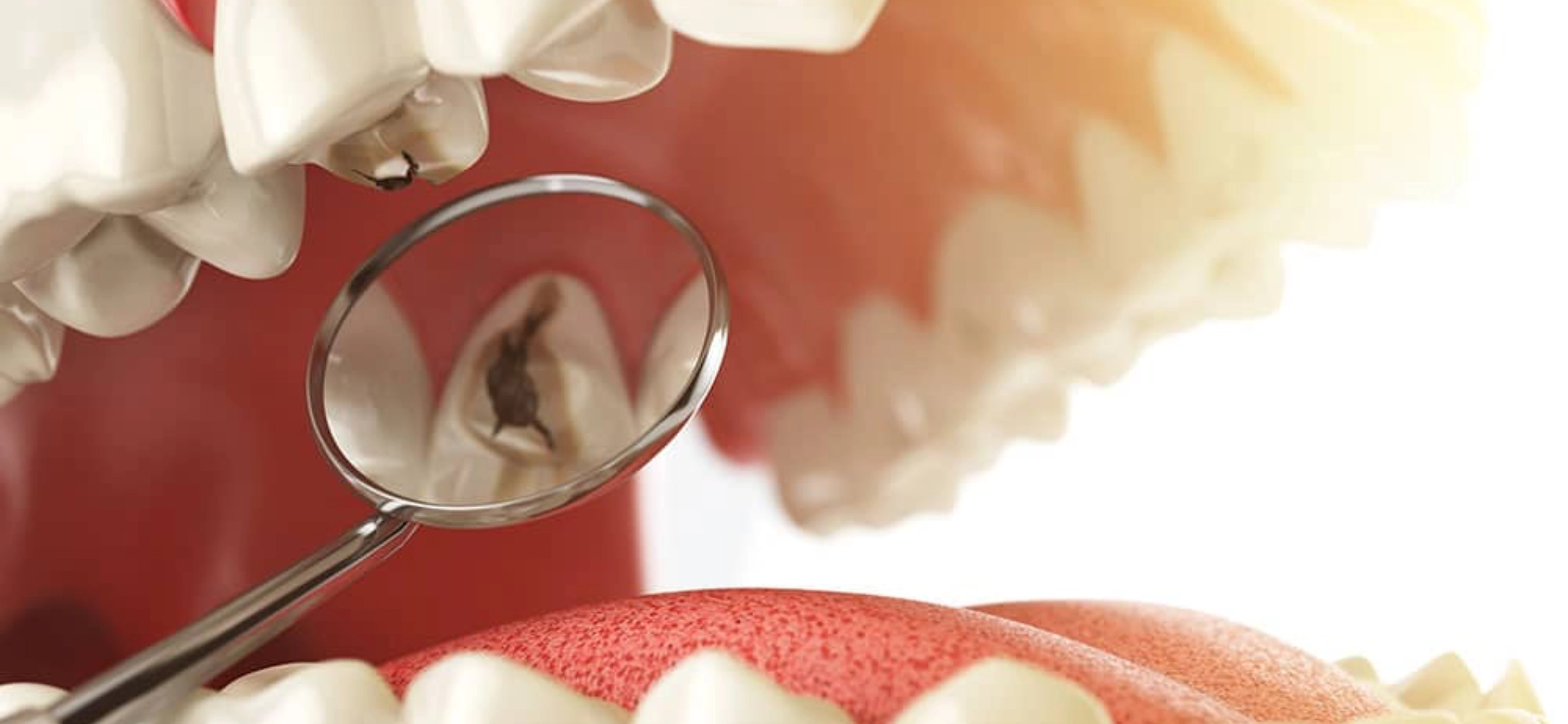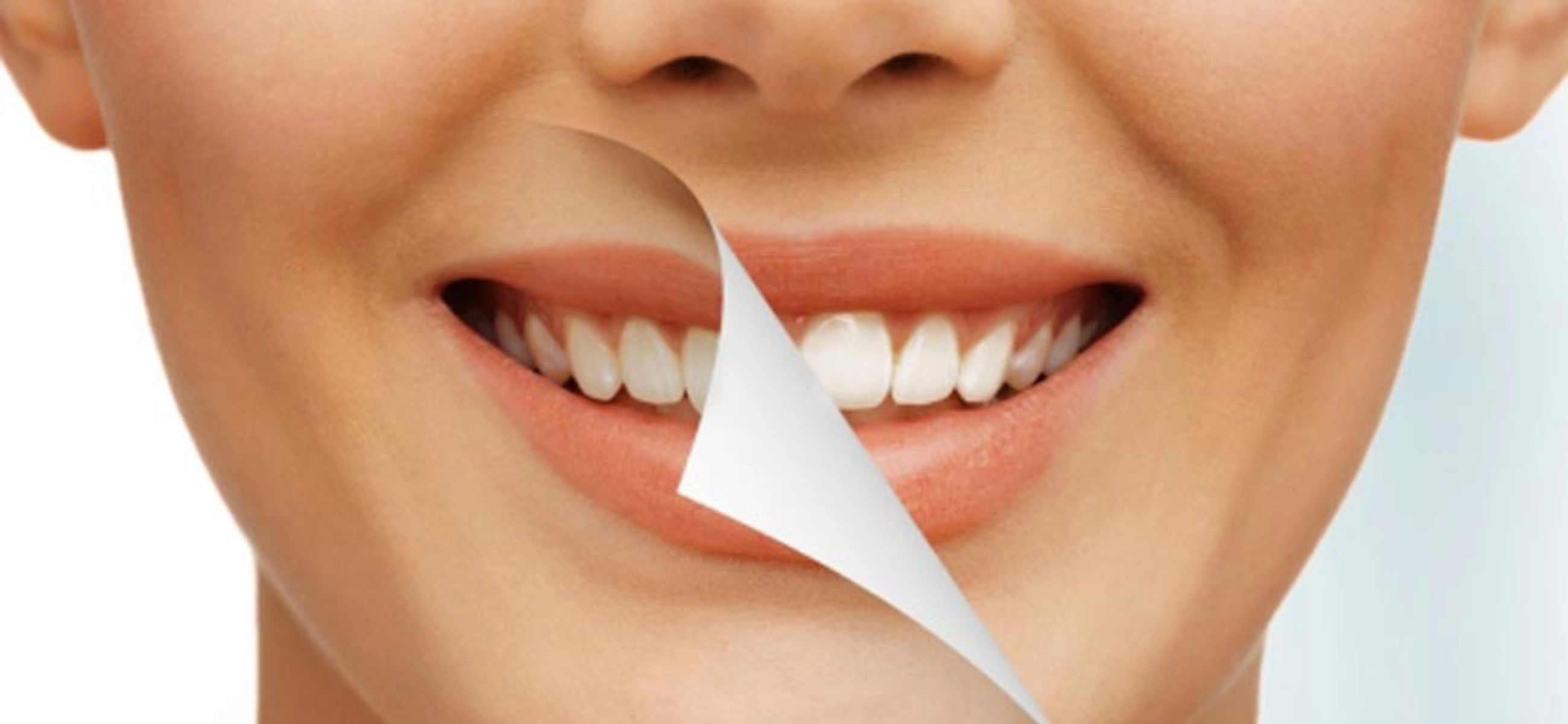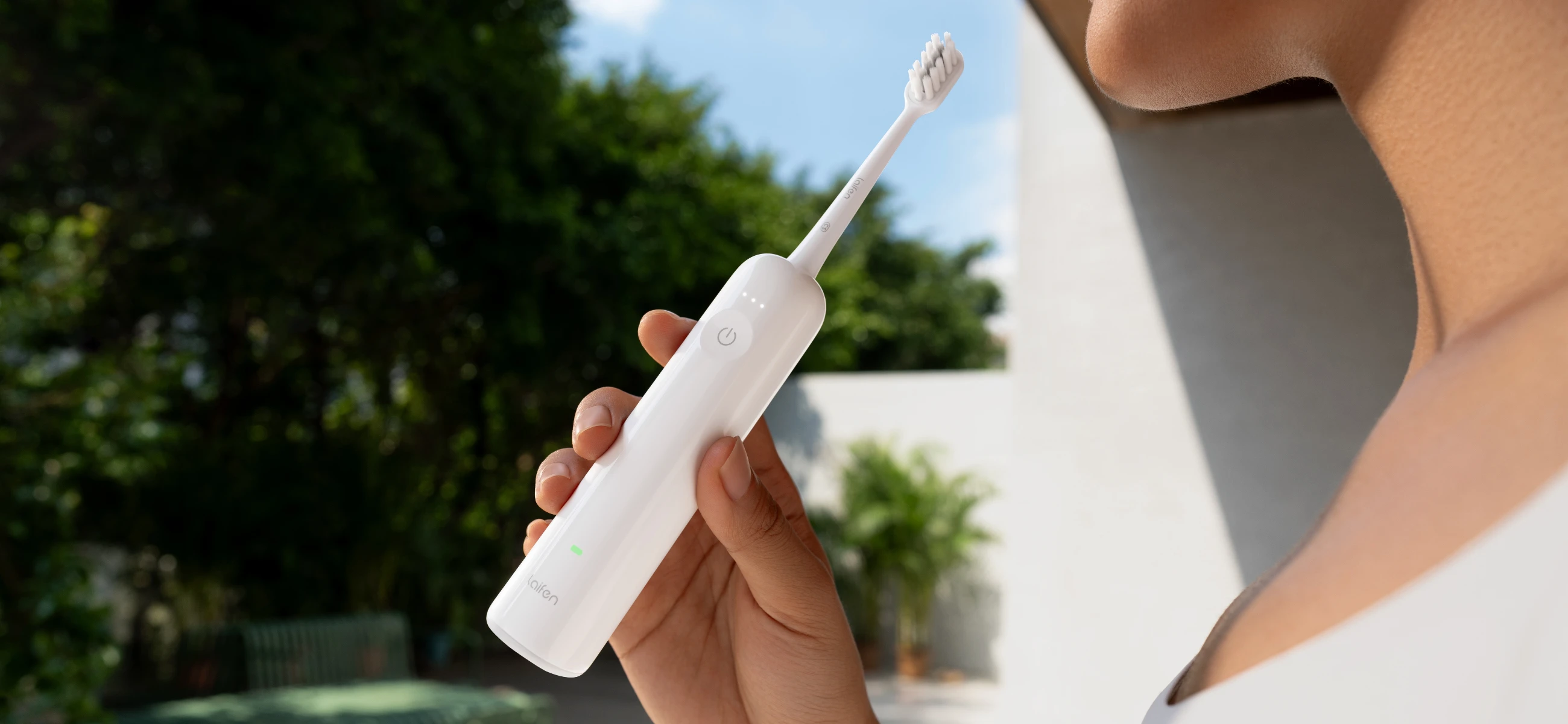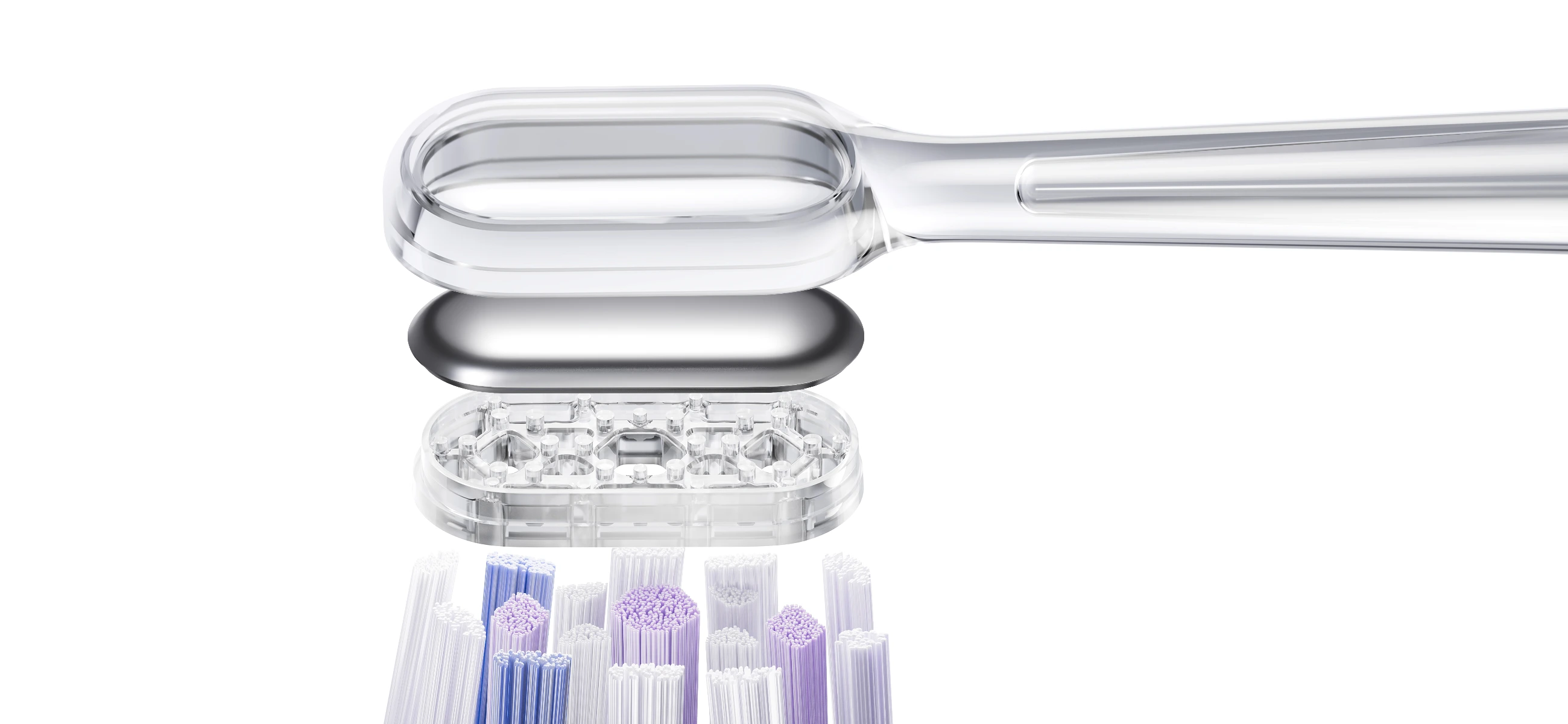Looking after your teeth with a well-established daily routine and by avoiding high-sugar food and drink is key to avoiding tooth decay. However, if you don’t look after your teeth properly and follow a high-sugar diet, you’re at a greater risk of dental caries, which affect billions of people worldwide.
But what exactly are dental caries, and how do they form? Here, we run through the leading causes of dental caries in children and adults and reveal some handy steps that you can follow to avoid tooth decay and maintain healthy teeth and gums.
First: What are dental caries?
Dental caries, commonly known as cavities, are essentially holes in your teeth that appear because of tooth decay. When plaque forms on your teeth and is not removed, it can wear away a tooth’s enamel, which can cause holes within your teeth. Research shows that 2.3 billion people worldwide suffer from dental caries at any given time, affecting slightly under one-third of the global population.
What are dental caries, and how are they caused?
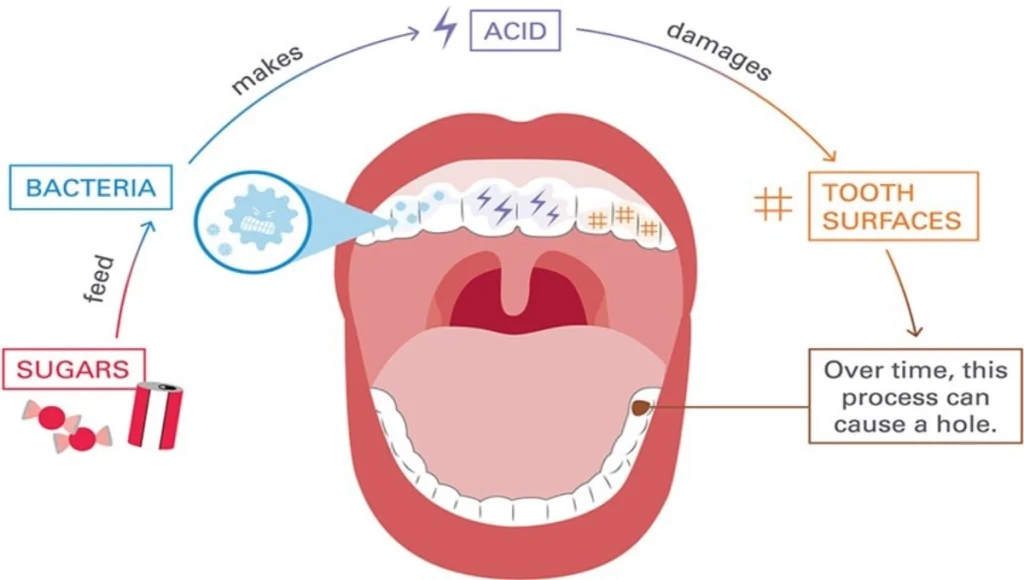
The leading cause of dental caries is the food that you eat, primarily free sugars. When you eat sugary food or drink sugary drinks, the bacteria in your mouth metabolize the product. This produces acid, which causes a process called demineralization. This eats away at some of the enamel on your teeth, which can cause small holes (caries or cavities) forming on your teeth. Let’s look at what causes this process in most people:
Free sugars
Common sources of free sugar include fruit juice, bread, milk, cereals, biscuits, cakes, honey, syrup, candy, and preserves. While a small amount of free sugar in your diet is manageable, ensuring that it doesn’t make up more than 10% of your daily intake is helpful for the health of your teeth.
Poor dental hygiene
Excessive sugar intake combined with poor dental hygiene exacerbates the issue of dental caries. People who don’t brush 2-3 times a day and forget to floss are more at risk of cavities, as are those who don’t regularly visit the dentist. If you eat sugary foods, get into the habit of brushing your teeth immediately after, as this can help to protect the enamel from demineralization.
What are the risk factors for dental caries?
The reality is that everyone is at risk of dental caries. However, children and adolescents are the population group with the highest risk. This is primarily because children and youths tend to eat more sugar than adults and have yet to receive their full set of adult teeth. Moreover, children are also less likely to follow a regimented teeth-cleaning routine.
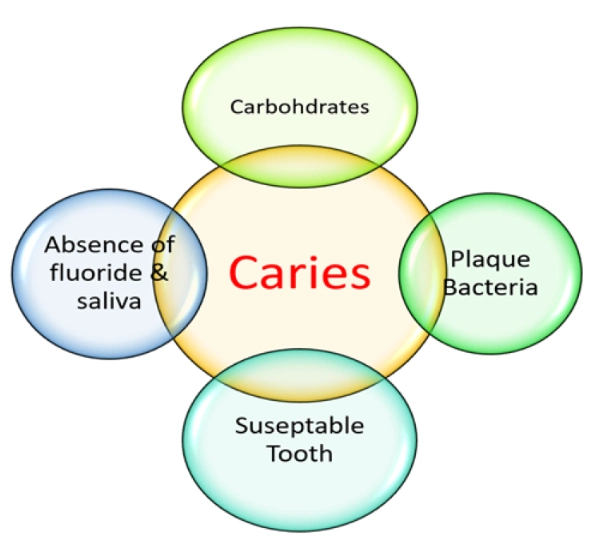
Moreover, poor and impoverished families are more susceptible to dental caries. This is because they’re less likely to seek regular dental care, which is key to the prevention of cavities forming. If a family is more affluent, they’re more likely to attend regular dental consultations, which helps the dentist identify potential caries before they worsen and decay the tooth.
What are the symptoms of dental caries?
So, how do you know if you have dental caries? You may notice one or several of the following symptoms:
- Sensitive teeth: When you take a hot drink or eat something cold like ice cream, noticing increased sensitivity on one or more teeth could be an indication of dental caries.
- Swelling: If caries form on the gum line, they could cause gingival swelling or redness.
- Bad breath: Dental caries are caused by acid and bacteria, and they can often cause bad breath or a bad taste in your mouth that doesn’t go away after brushing and flossing.
- Bleeding gums: Though more commonly a sign of gum disease, bleeding gums can also result from dental caries.
If you notice one or more of the symptoms above, you should arrange an appointment with your dentist before the caries deepen and cause significant tooth decay.
What are the types of dental caries?
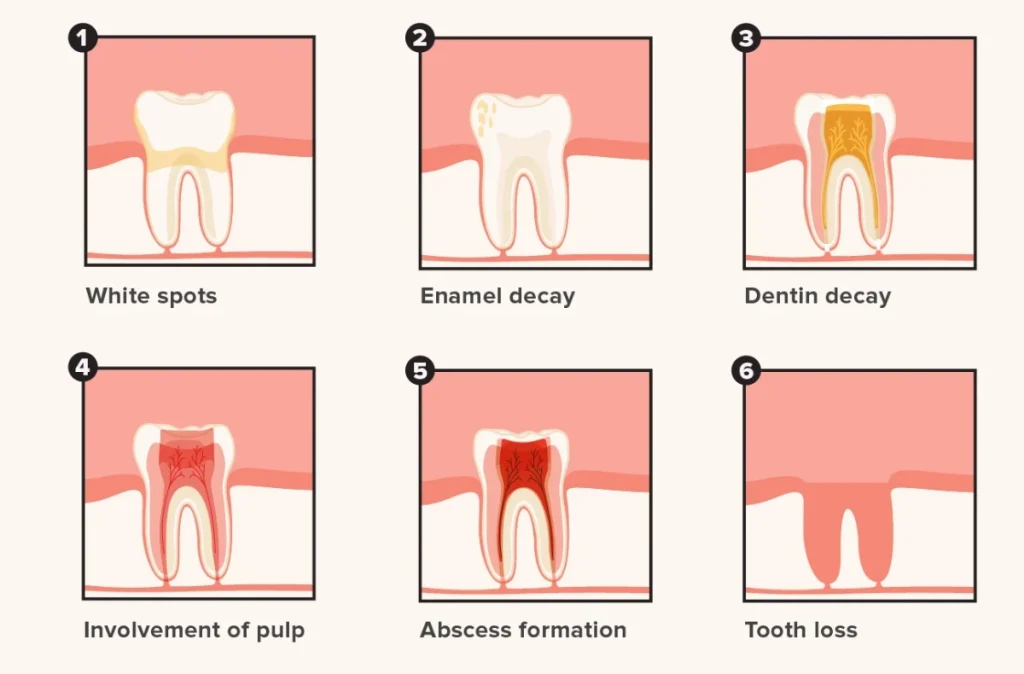
There are three main types of dental caries, and they are classified based on where they occur in the mouth. They are:
- Smooth surface caries: This is the most prevalent type of cavity, which forms on the surface of a tooth. It is slow-growing and begins to dissolve the tooth’s enamel. This type of cavity is reversible, provided you improve your diet and dental routine.
- Pit and fissure caries: This occurs when dental caries form on the chewing surface of your teeth. These caries progress to tooth decay quickly and can be painful.
- Root decay: The most severe cavity is when an infection gets to your roots, which may require root canal treatment. This is invasive dental work that is expensive in most parts of the world.
How to avoid dental caries and tooth decay?
Prevention is undoubtedly the best cure when it comes to dental caries and tooth decay. If you’re concerned about you or your child developing dental caries, follow these simple steps:
- Limit sugar intake: When you eat or drink sugar, it causes bacteria in your mouth to produce acid, which attacks your teeth. Limiting your sugar consumption, or removing highly sugary foods and drinks from your diet, can make a huge difference to the health of your teeth and will prevent caries from forming.
- Use an electric toothbrush with a timer: Switching from a manual to an electric toothbrush will improve the way you clean your teeth each day. Electric brushes, like the Laifen Wave, oscillate and vibrate simultaneously and are much more effective at plaque removal. If you haven’t yet made the switch, doing so can be hugely beneficial for your teeth.

- Floss & use mouthwash: Though it’s a little fiddly, flossing each day removes food particles from between your teeth and prevents caries from forming. You should also get into the habit of using an antibacterial mouthwash after brushing your teeth to fight plaque.
- Visit your dentist regularly: Rather than visiting your dentist when you have a problem, you should schedule appointments once or twice a year for a check-up at your dentist’s office. Your dentist can monitor the health of your teeth and identify any dental caries before they get bigger and cause more permanent tooth decay.
How to treat dental caries?
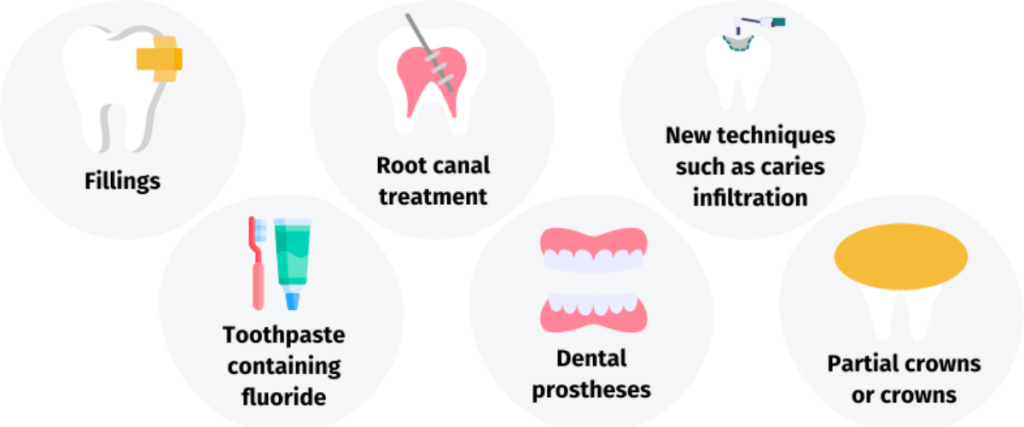
If you think you have dental caries on one or more of your teeth, the most important thing is to visit the dentist. Your dentist will examine the affected tooth and decide on the best course of action. If the caries are small, they may recommend an improvement in your daily dental routine before completing a full scale and polish of your teeth to remove plaque and tartar.
However, if a deeper cavity has formed, your dentist will likely recommend a filling with dental cement. This process is straightforward and doesn’t take long. It’s a permanent solution that will fill the hole and prevent further infection. The sooner you visit the dentist, the smaller the filling will be.
If the cavity has led to an infection in the root of a tooth, you will need to undergo a root canal, which sees the dentist drill into the tooth to remove the infection, before filling it.
Conclusion
At Laifen, we want to help you look after your teeth to the best of your ability. One of the most important steps you can take is to watch what you eat and drink and improve the way that you brush and floss your teeth.
Though dental caries affect billions of people worldwide, they can be prevented by following some simple steps. So, limit your sugar intake, brush your teeth with the Laifen Wave 2-3 times per day, and regularly visit your dentist to reduce your risk of suffering from dental caries.
FAQs
Q1: At what age are dental caries inevitable?
Though dental caries affect people of all ages worldwide, they’re not inevitable. In fact, if you avoid sugary foods and drinks, brush your teeth two or three times each day, and visit the dentist regularly, you can avoid dental caries. However, children from as young as three or four can develop dental caries, depending on their dental health and diet.
Q2: What are dental caries in children?
Dental caries can affect children and adults, but as mentioned above, children are more susceptible to tooth decay. Dental caries can show from as early as three years, so it’s extremely important to encourage your children to brush their teeth thoroughly each day.

